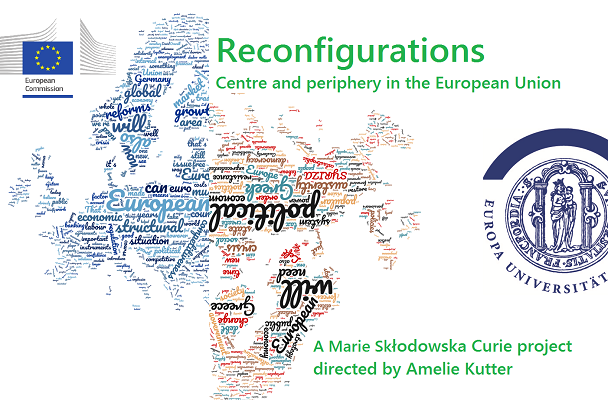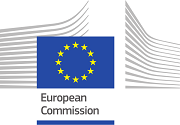Forschungsprojekt: Reconfigurations of centre and periphery in the European Union (2014-2019)


Drittmittel: Marie Skłodowska Curie Grant (PCIG14-GA-2013-632071), 2014-2017
Finanzierung: Europäische Kommission
Projektleitung: Amelie Kutter
Forschungsassistenz: Sophia Grunert (2014-2015), Julia Schneider (2015-2016), Gesine Lenkewitz (2016-2017), Christopher Fritzsche (2016-2017), Mona Lou Günnewig (2017-2018), Federico Masson (2019)
Kurzdarstellung: The project ‘Reconfigurations of centre and periphery in the European Union: a discursive political study’ investigates the transformation and redefinition of centre and periphery in the European Union (EU) in the aftermath of the financial crisis. It starts from the observation that the Eurozone crisis not only challenged the rationality of the European Economic and Monetary Union (EMU), but also damaged the project of developmental catch-up that, since the 1970s, had been at the core of EU integration and expansion. The crisis shattered those peripheral growth models that were linked to the appreciation of the Euro. The particular approach to crisis management enforced by the EU and the International Monetary Fund (IMF) rendered difficult any new strategy for development in the affected countries, trapping them in persistent recession, if not political and social-humanitarian crisis. This has given rise to movements that question not only the burden-placing of crisis management, but also the model of EU economic integration and the way national economies and polities are bound up with it. Those political forces, however, maintained an office that complied with EU/IMF credit conditionality.
The project investigates the hypothesis that the EU’s looming legitimation crisis has been partially contained by the discursive-symbolic construction of hierarchies between debtor and creditor states and their constituent societies. Economic interdependencies may have limited the range of plausible alternatives for crisis management and EU/IMF conditionality within the scope of democratic negotiation. However, the construction of (creditor-)centre and (debtor-)periphery in multilevel political communication is likely to have delimitated the discursive space in which Eurozone crisis management could be imagined and contested.
To investigate these assumptions, a framework is developed that combines the discourse theory and analytics of linguistic Critical Discourse Analysis with insights into the political economy, governance and political communication of European integration. The project explores discourse practices that have contributed to the construction of debtor-peripheries, including the symbolic performance of EU conditionality, mediatized crisis narratives and the ostracising (self )representation of marginalized groups. They are scrutinized in secondary and primary analyses of public statements by EU representatives, as well as by rival domestic camps and ordinary people in two countries, Greece and Ireland, who gained prominence as two different models of catch-up development. The discourse analysis is situated within an analysis of EU conditionality regimes and financial-economic interdependencies that have emerged since the Maastricht Treaty. Insights will be used to consolidate an interdisciplinary research programme to investigate centre-periphery relations within the EU. They will also inform recommendations for training in ‘reflexive EU literacy’, which includes the ability to switch between an EU-centric perspective and the perspective of the ‘EU-subaltern’ that is subject to processes of EU integration, with little capacity for co-determination.